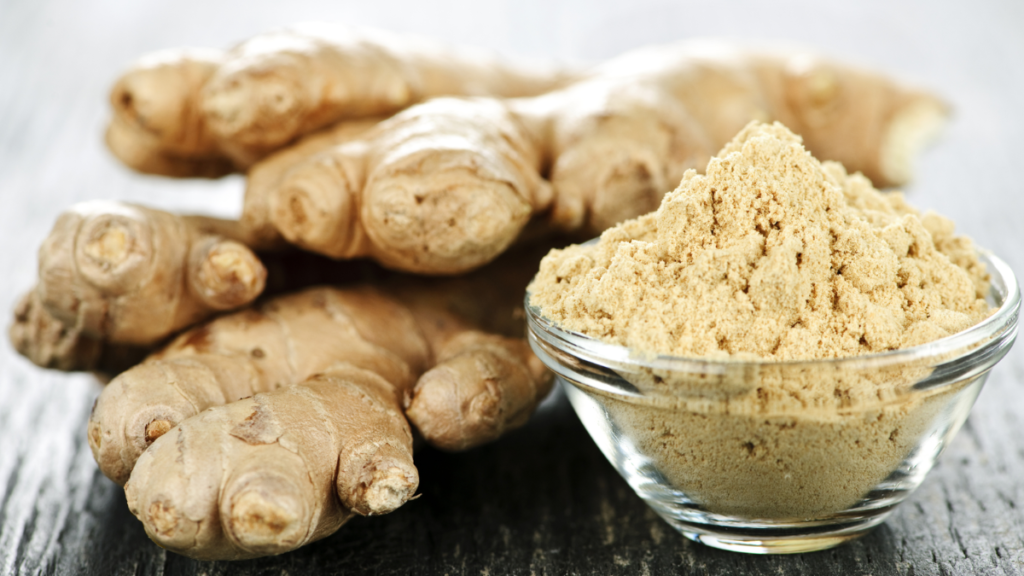Ginger and Heart Attacks: Exploring Potential Benefits:

Heart attacks are medical emergencies that require immediate attention. However, ongoing research is highlighting how certain natural remedies, like ginger, may offer additional support for heart health. Ginger, a common kitchen spice known for its medicinal properties, may have benefits that are particularly useful in the context of heart attacks. This blog explores how ginger can play a supportive role during heart health crises.
Understanding Heart Attacks:

A heart attack, or myocardial infarction, occurs when the blood flow to a part of the heart is blocked, typically by a blood clot. This blockage prevents oxygen from reaching the heart muscle, causing damage. Common symptoms include chest pain, shortness of breath, nausea, and cold sweats. Immediate medical intervention is crucial to restore blood flow and minimize damage.
Ginger’s Cardiovascular Benefits:
Ginger has been used for centuries in traditional medicine and is known for its potent bioactive compounds, such as gingerol. These compounds provide numerous health benefits that can support cardiovascular health, potentially impacting heart attacks in the following ways:
1. Anti-Inflammatory Properties:
Chronic inflammation is a major contributor to heart disease. Gingerol, the active compound in ginger, has powerful anti-inflammatory effects that can help reduce inflammation and support overall heart health.
2. Antioxidant Effects:
Oxidative stress damages cells and tissues, including those in the heart. The antioxidants in ginger help neutralize free radicals, protecting heart cells from oxidative damage.
3. Improving Blood Circulation:
Proper blood circulation is essential for heart health. Ginger can enhance blood flow, which helps prevent the formation of blood clots that can trigger heart attacks.
4. Lowering Blood Pressure:
High blood pressure is a significant risk factor for heart attacks. Ginger can help relax blood vessels and improve circulation, thereby reducing blood pressure and the strain on the heart.
5. Reducing Cholesterol Levels:
High levels of LDL (bad) cholesterol increase the risk of heart disease. Ginger has been shown to lower LDL cholesterol levels, promoting better heart health.
6. Anti-Clotting Properties:
Ginger’s natural anti-clotting abilities can help prevent the formation of dangerous blood clots. This property is particularly beneficial in maintaining clear and healthy arteries.
Ginger During a Heart Attack: Immediate Considerations:
While ginger’s long-term benefits for heart health are well-established, its immediate effects during a heart attack are less certain. Some research suggests that ginger’s ability to improve blood flow and reduce clotting might offer some supportive benefits during a heart attack. However, it is crucial to emphasize that during a heart attack, immediate medical intervention is essential. Ginger should not be relied upon as a primary treatment during such emergencies.
Incorporating Ginger into Your Diet:
To take advantage of ginger’s heart-health benefits, consider incorporating it into your daily diet:
- Ginger Tea: A warm and soothing way to consume ginger regularly.
- Fresh Ginger: Add fresh ginger to stir-fries, soups, and salads for a flavorful and healthful boost.
- Ginger Supplements: Available in capsule form, but consult a healthcare provider before starting any new supplement.
- Ginger Juice: Mix fresh ginger juice with other healthy juices like carrot or apple for a nutrient-rich drink.
Conclusion:
Ginger offers numerous benefits that support heart health, including anti-inflammatory, antioxidant, and circulation-enhancing properties. While it should not replace emergency medical care during a heart attack, its regular consumption can contribute to overall cardiovascular well-being and potentially reduce the risk of heart disease.

